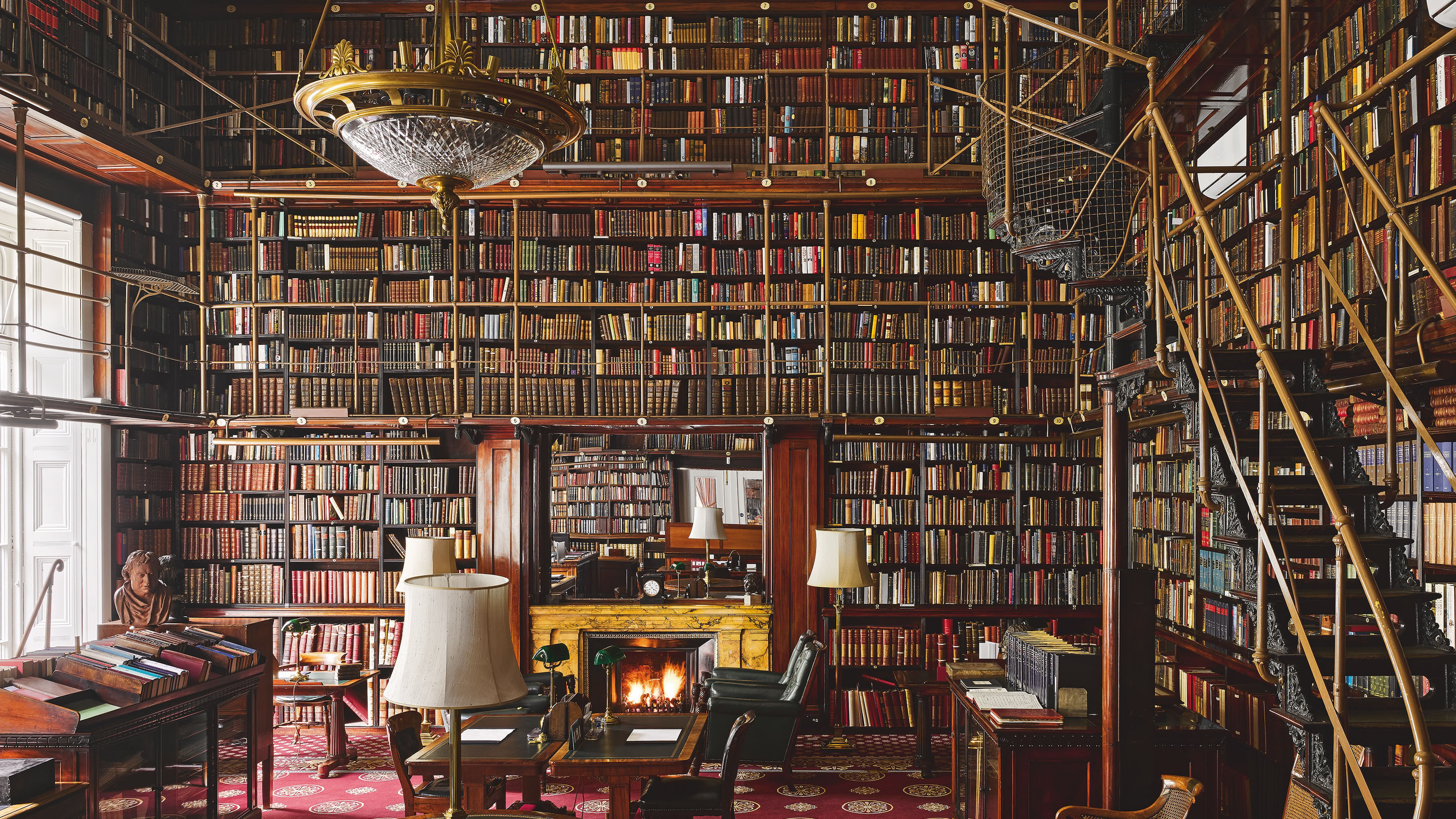Private Libraries, Public Influence: The Secret Power of Billionaires’ Book Collections
By
Sophie Moore
Last updated:
October 7, 2025
First Published:
October 7, 2025

Photo: Country Life
The Silent Statement of Wealth
Billionaires’ private libraries are more than repositories of books. They serve as quiet yet powerful symbols of influence, taste, and intellectual authority. Each collection tells a story about its owner’s priorities, worldview, and ambitions. From rare first editions to manuscripts unavailable to the public, these libraries often become a reflection of strategic thinking, demonstrating that wealth can extend beyond financial assets into the realm of knowledge.
Books as Status Symbols
While luxury cars or yachts often signal immediate wealth, private libraries communicate a deeper dimension of sophistication. Rare books, signed copies, and historically significant volumes are curated to reflect discernment and cultural capital. Ownership of such collections signals not just wealth but also education, refined taste, and social positioning within elite networks. These libraries act as silent social currency, subtly influencing peers and collaborators.
Curated Knowledge for Strategic Advantage
Billionaires frequently approach their libraries with strategy in mind. Beyond aesthetic appeal, books are tools for insight, guidance, and inspiration. Historical texts, philosophical treatises, and economic theories form a foundation for informed decision-making. This strategic curation allows them to anticipate trends, identify opportunities, and shape narratives in business, politics, or philanthropy. Knowledge stored in these collections often translates directly into power and influence.
The Art of Acquisition
Collecting rare books requires skill, timing, and a network of trusted sources. Auctions, private sales, and international dealers are avenues through which billionaires acquire exceptional items. Provenance, condition, and historical significance dictate value. The process itself demonstrates patience and discernment, qualities that mirror the meticulous approach many of these individuals apply to other aspects of wealth management.
Libraries as Legacy
For many wealthy individuals, private libraries are not just personal assets but legacies to be preserved. Carefully maintained collections often outlast financial fortunes, becoming enduring cultural landmarks. They are sometimes bequeathed to foundations, universities, or public institutions, creating a lasting impact on knowledge dissemination and intellectual heritage. This long-term perspective reinforces the idea that true wealth extends beyond money into influence and cultural stewardship.
Influence Through Privacy
The secret power of private libraries lies in their exclusivity. Unlike public collections, these libraries are rarely open to casual visitors. Access is granted selectively, often to influential thinkers, collaborators, or partners. Such exclusivity creates a unique platform for influence, allowing owners to shape conversations and ideas within carefully controlled circles. The collection itself becomes a subtle form of social leverage.
Technology and Modern Libraries
Digital tools and online cataloging systems have transformed how private libraries are managed and accessed. Some billionaires integrate digital databases alongside physical collections, combining convenience with preservation. Rare manuscripts may be digitized for research while remaining safely stored. This hybrid approach ensures that knowledge is both protected and actionable, reinforcing the strategic role of books in shaping decisions and influence.
The Intersection of Passion and Profit
While not primarily financial assets, rare books can appreciate in value over time. Many collectors view them as both cultural investments and potential financial instruments. The passion for acquiring and preserving rare volumes often aligns with broader wealth management strategies. Collectors may acquire historically significant editions that later gain substantial market value, demonstrating that intellectual curiosity and financial acumen are not mutually exclusive.
Global Trends in Elite Collecting
Private libraries are increasingly globalized. Billionaires source volumes from across continents, seeking manuscripts, early prints, and rare publications unavailable locally. This international approach reflects both the cosmopolitan nature of modern wealth and the strategic value placed on diverse knowledge. Libraries now serve as cross-cultural bridges, integrating global intellectual traditions into personal and professional decision-making.
The Future of Influence Through Books
As billionaires continue to shape industries, policy, and culture, private libraries remain vital tools of influence. These collections provide a space for reflection, strategy, and inspiration, fostering insights that can ripple across society. In an era dominated by instant information, the deliberate accumulation of curated knowledge stands as a testament to the enduring power of books in guiding decisions, preserving culture, and quietly defining the trajectories of influence.
Subscribe to unlock premium content
Sed at tellus, pharetra lacus, aenean risus non nisl ultricies commodo diam aliquet arcu enim eu leo porttitor habitasse adipiscing porttitor varius ultricies facilisis viverra lacus neque.
A comprehensive guide on Agile development

10 Productivity tools that are worth checking out

Top 7 Must have management tools for productivity

A comprehensive guide on Agile development

10 Productivity tools that are worth checking out

A comprehensive guide on Agile development








.png)
